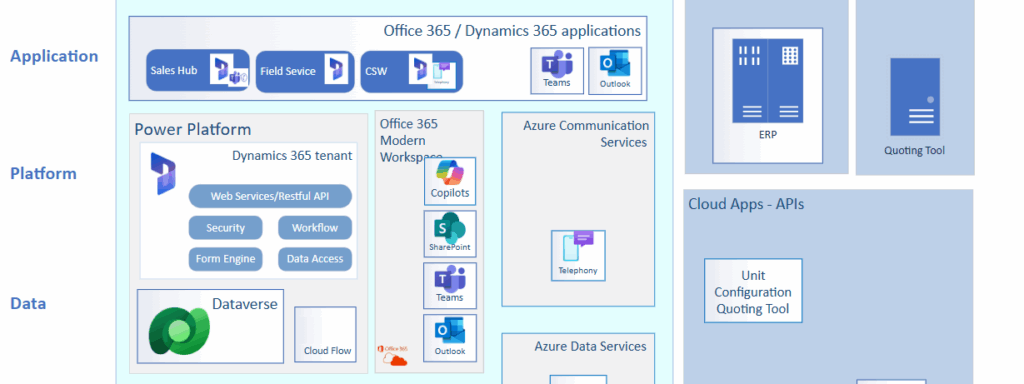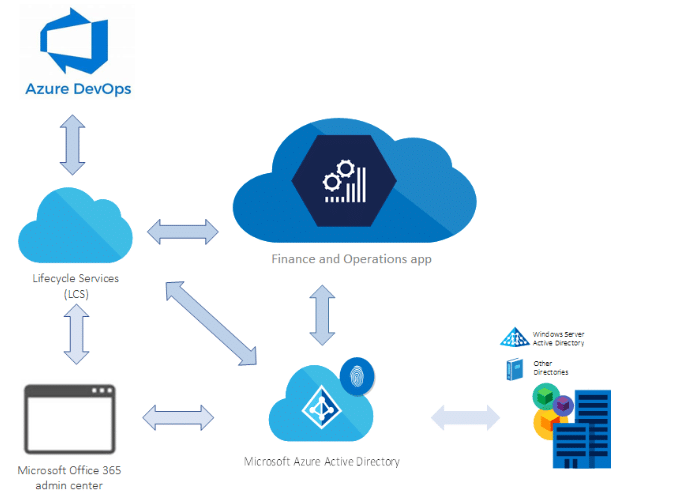Cybersecurity for Food ERP: Protecting Your Sensitive Data
In the food industry, data is just as valuable as your products—and just as vulnerable. Implementing strong cybersecurity in your food and beverage software systems—especially your ERP platform—is essential to protecting your business, your brand, and your customers.
Microsoft Dynamics 365 ERP, when combined with Microsoft 365 tools and industry-specific food software, can help food businesses guard against cyber threats and stay compliant in an increasingly digital world.
Why Food ERP Cybersecurity Matters
From proprietary recipes and supplier contracts to financial records and customer orders, food businesses rely on centralized ERP systems to run operations efficiently. However, with increased connectivity comes increased risk—cyber threats are growing more frequent, sophisticated, and targeted.
Many food companies assume they’re too small or too low-risk to be targets. But the reality is, cybercriminals increasingly target mid-sized manufacturers, distributors, and processors, particularly in essential industries like food.
Why? Because these companies:
- Handle sensitive financial and operational data
- Store customer and vendor information
- May lack the resources for enterprise-level security
- Often rely on legacy systems with outdated protection
Cybersecurity isn’t just about IT—it’s about business continuity, reputation, and trust. Without proper security in place, a ransomware attack, phishing scheme, or internal breach can lead to:
- Production downtime
- Corrupted inventory and order data
- Stolen intellectual property
- Fines from failing to meet FDA, USDA, or GDPR requirements
Microsoft Dynamics 365: Built for Food & Beverage Security from the Ground Up
Microsoft Dynamics 365 ERP (including Business Central and Supply Chain Management) is built on the secure Microsoft Azure cloud platform, giving food businesses access to enterprise-grade cybersecurity tools without the complexity or cost of managing them internally.
Key security features include:
- Role-based access control (RBAC) ensures only authorized users can view or change sensitive data
- Multi-factor authentication (MFA) requires a second layer of login protection to stop unauthorized access
- Data encryption in transit and at rest so all information is protected inside and outside your network
- Automatic updates and patching to keep your system up to date with the latest security features
- Geo-redundant backups and disaster recovery to ensure business continuity even if a breach or outage occurs
Seamless Integration with Microsoft 365 Tools
Chances are, your food business already uses Microsoft 365 tools like Excel, Outlook, Teams, and SharePoint. These programs integrate tightly with Dynamics 365 ERP, providing employees with powerful, familiar tools that utilize the same advanced security infrastructure.
For example:
- Emails and file sharing via Outlook and Teams are protected by Microsoft Defender for Office 365, blocking phishing and malware.
- Files stored in OneDrive or SharePoint are encrypted and can include sensitivity labels or access restrictions.
- Excel and Word documents connected to Dynamics 365 can be restricted to particular groups or users, helping maintain data integrity.
Protecting Food Industry-Specific ERP Data
Food and beverage ERP systems often hold more than just financials. They often include:
- Recipes or formulas
- Supplier certifications
- Batch and lot traceability records
- Quality testing data
- Recall history and audit trails
- Compliance documentation (FDA, HACCP, FSMA, etc.)
Industry-specific ERP add-ons such as YAVEON ProBatch work within Dynamics 365 to manage this specialized data. Because they are built for integration, they inherit the same high-level security protocols provided by Microsoft Azure and Dynamics 365.
This means even your most niche and regulated data—like allergen declarations or shelf-life testing logs—can be protected, tracked, and backed up reliably.
Food & Beverage Monitoring, Alerts, and Threat Detection
Cybersecurity doesn’t stop with system architecture. Dynamics 365 and Azure offer intelligent, proactive monitoring that enables food businesses to stay ahead of evolving threats.
With tools like:
- Microsoft Defender for Cloud, you can detect unusual user behavior or potential threats across devices and applications.
- Azure Sentinel, AI analyzes activity logs, alerts your IT team to breaches, and recommends responses.
- Audit trails and reporting dashboards, you can see who accessed what data, when, and why.
These capabilities provide transparency and accountability—critical when responding to compliance audits or customer data requests.
Simplified Food Industry Compliance and Audit Readiness
From FDA’s Food Safety Modernization Act (FSMA) to EU GDPR and industry-specific certifications like GFSI or BRC, food companies face a growing number of data regulations. Demonstrating data integrity, security, and traceability can reduce the risk of costly penalties or recalls—giving you a competitive advantage.
Dynamics 365 helps simplify food and beverage compliance with built-in capabilities to:
- Maintain accurate, tamper-proof records
- Automate retention and deletion policies
- Track all system access and changes
- Provide reports and documentation during audits
- Keep up with changing regulatory requirements with cloud-based updates
Let Stoneridge Help You Defend Against Cyber Risks
With Microsoft Dynamics 365 ERP, food businesses gain enterprise-grade security, continuous monitoring, and regulatory support—all in a scalable, user-friendly system.
Contact the experts at Stoneridge Software today to have us implement the D365 ERP system that works for you.
Under the terms of this license, you are authorized to share and redistribute the content across various mediums, subject to adherence to the specified conditions: you must provide proper attribution to Stoneridge as the original creator in a manner that does not imply their endorsement of your use, the material is to be utilized solely for non-commercial purposes, and alterations, modifications, or derivative works based on the original material are strictly prohibited.
Responsibility rests with the licensee to ensure that their use of the material does not violate any other rights.







